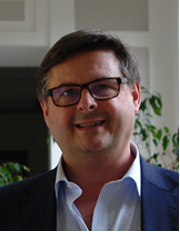Francisco Chinesta (ENSAM, Paris) a animé un Seminar@SystemX sur le thème « TWINS in the third millennium engineering and industry », le 19 novembre 2020.
Résumé :
Last century technology was based on physical and mathematical models that allowed fine and accurate predictions when applied to determinists systems. That technological framework faced several difficulties, the main of them related to (i) the system size (it was successfully applied in small systems and components); (ii) the amount of uncertainty they involved (the smaller the better); (iii) the desired characteristic response time (difficult to address real-time responses); and (iv) the complexity of the involved physics (simplifying hypotheses induce inaccuracies).
The XXI century technology involves larger expectations, related to modelling and predicting responses of larger complex systems, often systems of systems, extremely large, extremely uncertain, extremely complex (multiphysics and multiscale) and their responses are expected to fulfil the stringent real-time constrains that decision-making imposes.
Addressing these complex systems of systems becomes impossible within the last century modelling paradigm, the one based on physics and its mathematical manipulation. New techniques enable the construction of realistic representations of the real systems: (i) Model Order Reduction; (ii) Physics-aware artificial intelligence; (iii) Data-driven modelling; (iv) Data-assimilation, reparation, completion and curation; (iv) AI-based control and decision making; (v) Physics-based and data-driven models fusion; (vi) functionalities integration within the so-called twins (virtual, digital and hybrid twins)…
Biographie :
 Francisco Chinesta is currently full Professor of computational physics at ENSAM Institute of Technology (Paris, France), Honorary Fellow of the “Institut Universitaire de France” – IUF- and Fellow of the Spanish Royal Academy of Engineering. He is the president of the ESI Group scientific committee and director of its scientific department. He was (2008-2012) AIRBUS Group chair professor and since 2013 he is ESI Group chair professor on advanced modeling and simulation of materials, structures, processes and systems. He received many scientific awards (among them the IACM Zienkiewicz, the ESAFORM, …) in four different fields: bio-engineering, material forming processes, rheology and computational mechanics (with major contributions in Model Order Reduction and Engineered Artificial Intelligence, both integrated in the so-called Hybrid paradigm of Simulation Based Engineering). He is author of more than 320 papers in peer-reviewed international journals and more than 900 contributions in conferences. He was president of the French association of computational mechanics (CSMA) and is director of the CNRS research group (GdR) on model order reduction techniques in engineering sciences, editor and associate editor of many journals. He received many distinctions, among them the Academic Palms, the French Order of Merit, … in 2018 the Doctorate Honoris Causa at the University of Zaragoza (Spain) and in 2019 the Silver medal from the French CNRS.
Francisco Chinesta is currently full Professor of computational physics at ENSAM Institute of Technology (Paris, France), Honorary Fellow of the “Institut Universitaire de France” – IUF- and Fellow of the Spanish Royal Academy of Engineering. He is the president of the ESI Group scientific committee and director of its scientific department. He was (2008-2012) AIRBUS Group chair professor and since 2013 he is ESI Group chair professor on advanced modeling and simulation of materials, structures, processes and systems. He received many scientific awards (among them the IACM Zienkiewicz, the ESAFORM, …) in four different fields: bio-engineering, material forming processes, rheology and computational mechanics (with major contributions in Model Order Reduction and Engineered Artificial Intelligence, both integrated in the so-called Hybrid paradigm of Simulation Based Engineering). He is author of more than 320 papers in peer-reviewed international journals and more than 900 contributions in conferences. He was president of the French association of computational mechanics (CSMA) and is director of the CNRS research group (GdR) on model order reduction techniques in engineering sciences, editor and associate editor of many journals. He received many distinctions, among them the Academic Palms, the French Order of Merit, … in 2018 the Doctorate Honoris Causa at the University of Zaragoza (Spain) and in 2019 the Silver medal from the French CNRS.
